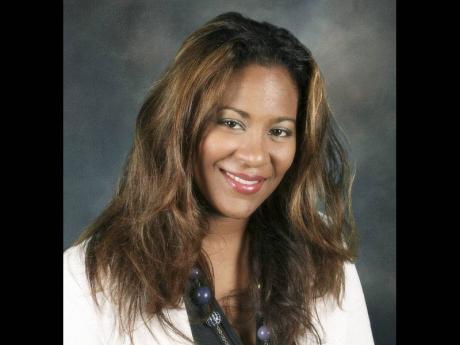(Jamaica Gleaner) Consultant psychiatrist and government senator Dr Saphire Longmore has turned the spotlight on the treatment of mentally ill persons by their families and the wider society, charging that the stigma and discrimination against this group was “very unfortunate”.
She was making her contribution to the debate on a motion moved by Opposition Senator Floyd Morris last Friday that called for the Government to put an interim measure in place creating access to Gordon House for persons with disabilities, among other things. The motion was passed with one amendment.
According to Longmore, the human rights of the mentally ill are often ignored by even members of their family.
Acknowledging that there was the need for greater public education on mental illnesses, the government senator said that there were situations where family members removed patients from the hospital to an obeah man for “treatment”.
“Many times on Ward 21, families come and actually sign out their families who have been admitted for treatment to take them to the obeah man because they don’t understand and recognise the need for this form of treatment,” she said.
Ward 21 is a section of the University Hospital of the West Indies that treats mental illness.
In a follow-up interview with The Gleaner, Longmore said family members, against the advice of psychiatrists, often remove the patient only to return at a later date with the mental problems more severe.
And, the call for a special facility for persons who are mentally ill and in conflict with the law resonated with greater vehemence on Friday when Longmore pressed for its establishment. In particular, she said a specific forensic psychiatric facility was needed.
A GREAT PAIN
“Those persons have to be housed in the general facility with other prisoners, and they are significantly victimised. They are the victims of rape, inhumane conditions. They don’t get the treatment that they need, and this is a great pain that needs to be addressed,” said Longmore, who received support from her senatorial colleagues.
Discriminatory hiring practices were also frowned on by Longmore. She told her colleagues in the Upper House that persons who are mentally ill are often not shortlisted for jobs and that those who are employed are eventually dismissed when it is discovered that they “may have an issue that was not obvious when they were first employed”.
“Medication and care for the mentally ill are such now that a lot of movers and shakers pop their pills and take their injections or do whatever other mechanism but are still able to function. Many persons could be in a similar light if we give them the opportunity to seek the resources and not be discriminated,” she said.
Turning to the insurance industry, Longmore contended that while coverage was provided for persons who suffer physical harm or injury, those who develop mental illnesses could not access a plan for their treatment.
She noted that there was significant resistance in the insurance industry to providing coverage for persons who develop mental illnesses and are in need of treatment.
Commenting on another issue relating to how family treat with their mentally ill relatives, the psychiatrist noted that a little more than 400 of the 538 inmates at Bellevue Hospital in east Kingston have been abandoned by their families.
“They are stable enough to go home, but they have nowhere to go because their families just left them there,” she said.
This situation must be addressed, Longmore asserted, adding that a review was now under way to make Bellevue more effective in returning persons to viable lives.






